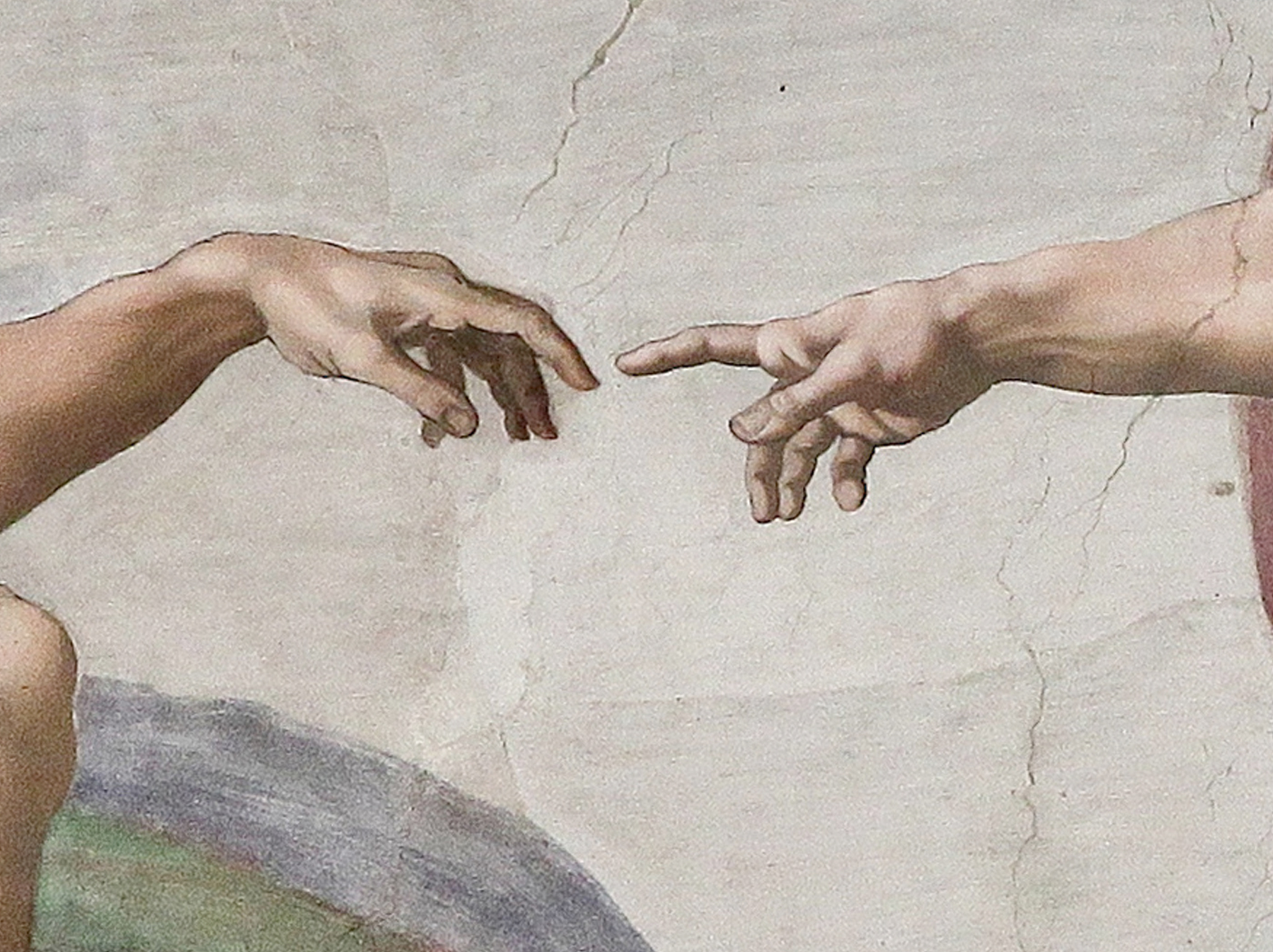So many times when I hear the expression “I’m only human,” often used to acknowledge one’s fallibility or deflect criticism, I find myself drawn to wonder where things went wrong. Being human in today’s society can sometimes be seen as a deficit rather than the great gift it is. We need to be reminded that we are made in the image and likeness of a loving God who only wants what’s best for us.
The more we interact with digital devices and become fascinated with artificial intelligence, the more we forget what it means to be human. We learn at an early age that God made us to show forth His goodness and to share with us His everlasting happiness in heaven. He made each of us—male and female—God created us. We are unique human beings with a capacity for rational thoughts and emotions. We can appreciate beauty and creativity, all within the context of identity, purpose and morality. “Before I formed you in the womb, I knew you.” (Jer 1:5)
Praying is an expression of our humanness—St. Therese of Lisieux called it “a conversation between two friends.”
God made us in friendship. He made us to be in a relationship with Him, and He made us to be in relationship with each other. It is through our very essence that we can know God and enjoy His friendship. “In many ways, throughout history down to the present day, men have given expression to their quest for God in their religious beliefs and behavior: in their prayers, sacrifices, rituals, meditations and so forth. These forms of religious expression, despite the ambiguities they often bring with them, are so universal that one may well call man a religious being.” (CCC #28)
Despite being made by God and made to know God, we seem to have difficulty understanding what it means to be human. When we attempt to define humanness outside the context of God, our efforts are frustrated and without resolution. We turn inward and maintain our own “expert advice” rather than understand our humanness through the context of creator and created. “Of all visible creatures only man is ‘able to know and love his creator.’ He is ‘the only creature on earth that God has willed for its own sake,’ and he alone is called to share, by knowledge and love, in God’s own life. It was for this end that he was created, and this is the fundamental reason for his dignity.” (CCC #356)
St. Catherine of Sienna reflects on human dignity when she writes, “What made you establish man in so great a dignity? Certainly the incalculable love by which you have looked on your creature in yourself! You are taken with love for her; for by love indeed you created her, by love you have given her a being capable of tasting your eternal Good.” (The Dialogue of St. Catherine of Siena)
Being human is about living in right relationship with others and with right relationship with self. Human beings are the only part of God’s creation who can exercise self-mastery. We express our humanness when we give and receive love; when we share our lives with others and live with a sense of interdependence. “Being in the image of God, the human individual possesses the dignity of a person, who is not just something, but someone. He is capable of self-knowledge, of self-possession and of freely giving himself and entering into communion with other persons. And he is called by grace to a covenant with his Creator, to offer him a response of faith and love that no other creature can give in his stead.” (CCC #357)
Because we are made in the image and likeness of God, we are able to know Him and what He has done for us. Despite our attempts to “be another creator,” the base reality still remains: God is God, and we are not. It is through our human weakness that God reveals His saving power. We are tempted to demand perfection from others and from ourselves. God alone is perfect. He tells us, “Whoever wishes to come after me must deny himself, take up his cross, and follow me.” (Mk 8:34)
We must remember that we are called to be a light to all nations, a people set apart. When we witness to the truth, our belief in Christ becomes visible and everyone will see goodness in our actions and give honor and glory to God. Let us live as children of God, fully human and fully free to give and receive the love of God, because God made us out of love, gives us dignity to love Him back and wants us to spend eternity with Him in heaven.
MOST REVEREND WILLIAM PATRICK CALLAHAN
Bishop of the Catholic Diocese of La Crosse
Published in the May/June 2023 issue of Catholic Life Magazine

